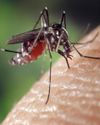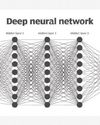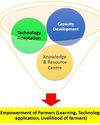
Rodshaped materials who selength ranges in micrometers but diameter is in the range of 1-100 nanometer can also be considered as nanomaterials. What is nanometer or how small is that? A nanometer is one-billionth of a meter (A meter is 39.37 inches, or slightly longer than one yard). The prefix “nano” means “one billionth”, or 10-9, in the international system for units of weights and measures. The abbreviation for nanometer is "nm." A nanometer is one-billionth of a meter and if we compare with the diameter of human hair, it is about 50,000 times thick than diameter of nanometer. Let's suppose we have a sheet of paper which is already very less in thickness and if we divide this thickness by nanometers then it will be about 100,000 nanometers thick. Depending on the shape, the application, or the components, nanomaterials may be called by a variety of different names, including nanoparticles, nanotubes, nanofilms, nanoshells, nanospheres, nanowires, nanoclays, nano-polymers, and much more. There is exponentially increase in the surface area of nanomaterials during synthesis from bulk materials which makes these materials highly reactive and gain novel properties. Because of very small size nanomaterials can behave differently, for example, a material's melting point, color, strength, chemical reactivity, and more may change at the nanoscale.
Types of Nanomaterials
Nanomaterials are present in the environment since the history of earth and are produced by many natural activities. Nanoscale materials have been used for over a thousand years. For example, nanoscale gold was used in stained glass in Medieval Europe and nanotubes were found in blades of swords made in Damascus. Nanomaterials are produced by both natural and anthropogenic/manmade activities.
This story is from the November - December 2019 edition of Scientific India.
Start your 7-day Magzter GOLD free trial to access thousands of curated premium stories, and 9,000+ magazines and newspapers.
Already a subscriber ? Sign In
This story is from the November - December 2019 edition of Scientific India.
Start your 7-day Magzter GOLD free trial to access thousands of curated premium stories, and 9,000+ magazines and newspapers.
Already a subscriber? Sign In

An insight into Chandipura virus in India
Recently lot of news regarding disease due to Chandipura virus has emerged in various newspapers/magazines. After reading the reports published it seems that thing is still brewing in the natures nest and it could affect mankind.

Why elephants never forget?
An elephant has a very large brain for its size and the 'temporal lobe' region responsible for memory is more developed with a greater number of folds - this results in powerful abilities to 'download' important survival data such as where to find food and water, and who is friend or foe.

Use of Algae for Wastewater Treatment Containing Heavy Metals
Wastewater treatment is a critical environmental issue particularly when it comes to the removal of heavy metals.

Nano priming Seeds: A Small Innovation Sparkling Big Advances in Germination
Nanopriming is an emerging agricultural technique where the seeds are treated with nanoparticles to improve their germination, growth, and overall performance.

Nobel Laureates in Physics 2024: Revolutionizing AlThe Physics Foundations Behind Machine Learning
This year's two Nobel Laureates in Physics have used tools from physics to develop methods that are the foundation of today's powerful machine learning.

Revolutionizing Biology: The 2024 Nobel Prize in Chemistry Celebrates Breakthroughs in Protein Design and Structure Prediction
The Nobel Prize in Chemistry 2024 is about proteins, life's ingenious chemical tools.

New findings on animal viruses with potential to infect humans
Scientists investigating animal viruses with potential to infect humans have identified a critical protein that could enable spillover of a family of organisms called arteriviruses.

Father-Daughter Team Decodes Mars' Alien Signal
There is no definitive answer to whether aliens exist, but there is a lot of work being done to find out:

Krishi Vigyan Kendras: Working for Farmer's Welfare
Krishi Vigyan Kendras (Farm Science Centres) are the District level institution serving as an agriculture knowledge resource & capacity development centre which plays indispensable role in front line extension regarding agriculture system in scientific way.

Sixth generation Computer: The future computing technology
We are in a transition towards a digital world, where everything will be dealt with in digital format.